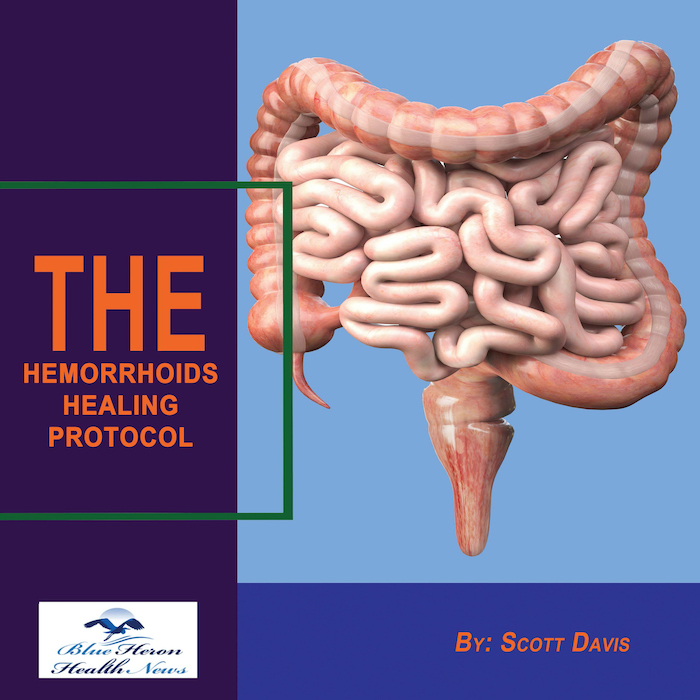
The Hemorrhoids Healing Protocol™ By Scott Davis Hemorrhoid healing protocol is a three-week online program that helps in treating and reducing hemorrhoids. It teaches gentle recipes and movements, natural and effective remedies that help in treating hemorrhoids.This program is not like the usual prescription medicines, it is a hell of a lot more than just those drugs. It focuses more on elevating the two main not so good habits that are connected to the Hemorrhoids. Overall the sole motive of this program is to remove the problem from its root instead of just treating the symptoms.
How can one manage hemorrhoids with Crohn’s disease?
Managing hemorrhoids with Crohn’s disease requires a careful approach that addresses both conditions, as Crohn’s can increase sensitivity in the digestive tract and complicate hemorrhoid symptoms. Here are some strategies to help manage hemorrhoids while minimizing Crohn’s disease flare-ups:
1. Focus on a High-Fiber, Anti-Inflammatory Diet
- High-Fiber Foods for Easier Bowel Movements: Fiber helps soften stool and promote regular bowel movements, reducing strain on hemorrhoids. However, individuals with Crohn’s should focus on soluble fiber (found in foods like oats, apples, bananas, and carrots) rather than insoluble fiber, which can be harder on inflamed intestines.
- Anti-Inflammatory Foods: An anti-inflammatory diet with foods like leafy greens, berries, and fish high in omega-3s can help reduce inflammation, which benefits both Crohn’s and hemorrhoid symptoms.
- Avoid Trigger Foods: Common Crohn’s triggers, like dairy, spicy foods, caffeine, and processed foods, can irritate the digestive tract and worsen hemorrhoid symptoms. Identifying and avoiding personal trigger foods can prevent flare-ups that might exacerbate hemorrhoids.
2. Stay Hydrated
- Promote Softer Stools: Drinking plenty of water keeps stool soft, which minimizes strain during bowel movements and reduces hemorrhoid irritation.
- Avoid Dehydrating Beverages: Limit alcohol and caffeine, as these can dehydrate and lead to harder stools, which are more likely to aggravate hemorrhoids and inflame the GI tract.
3. Use Gentle Stool Softeners if Needed
- Reduce Straining: If fiber and hydration alone are not enough, stool softeners (like docusate sodium) can help make bowel movements easier and reduce strain. This is particularly useful during Crohn’s flare-ups when constipation might worsen hemorrhoids.
- Avoid Harsh Laxatives: Certain laxatives can be too harsh for people with Crohn’s disease, causing cramps and irritation. Always consult a healthcare provider before starting a new stool softener or laxative.
4. Practice Gentle Hygiene
- Use Soft, Moist Wipes: Gentle, fragrance-free wipes or damp toilet paper can help prevent further irritation to hemorrhoids without aggravating sensitive skin. Avoid using rough or dry toilet paper, which can cause pain or bleeding.
- Pat Dry After Cleaning: Rather than rubbing, pat the area dry to minimize irritation. Using a soft, clean towel can reduce the risk of further inflaming hemorrhoids or the surrounding skin.
5. Try Warm Sitz Baths
- Soothing Relief for Hemorrhoids: Warm sitz baths (sitting in a shallow bath of warm water) can reduce pain and inflammation around hemorrhoids. Soaking for 10–15 minutes, two to three times daily, can relieve irritation and promote blood flow, which helps with healing.
- Avoid Adding Irritants: Stick to plain water, as additives like bubble bath or salts can aggravate both hemorrhoids and Crohn’s-affected skin.
6. Use Topical Treatments Carefully
- Hemorrhoid Creams and Suppositories: Certain creams or suppositories can relieve hemorrhoid symptoms, but it’s essential to choose gentle, fragrance-free options. Products with hydrocortisone or witch hazel can reduce inflammation, but consult your doctor to ensure they’re safe for your Crohn’s.
- Avoid Harsh Medications: Some over-the-counter hemorrhoid treatments may contain ingredients that can irritate sensitive skin or cause allergic reactions. Always check with a healthcare provider before starting any topical treatment.
7. Engage in Gentle Exercise
- Improve Circulation and Reduce Pressure: Low-impact exercises like walking, swimming, and yoga promote circulation and reduce pressure in the rectal area, which can help manage both Crohn’s symptoms and hemorrhoids.
- Avoid Strenuous Activities: Heavy lifting and high-impact workouts can strain the abdominal area, which may worsen hemorrhoids and aggravate Crohn’s symptoms.
8. Consider Medications for Crohn’s Management
- Anti-Inflammatory Drugs: Controlling Crohn’s with medications like anti-inflammatory drugs, biologics, or immunosuppressants can reduce inflammation and improve digestive health, which may prevent hemorrhoid flare-ups.
- Work with a Gastroenterologist: Regular follow-ups with a gastroenterologist can ensure that Crohn’s is managed optimally. Managing Crohn’s symptoms effectively can reduce the frequency and severity of hemorrhoid-related issues.
9. Practice Mindful Bowel Habits
- Avoid Straining: Straining during bowel movements increases pressure on hemorrhoids, so try not to push or force bowel movements. Give yourself time and use breathing techniques to stay relaxed.
- Establish a Routine: Having regular, unhurried bathroom habits can help prevent constipation and reduce hemorrhoid irritation. Going at the same time each day can promote natural bowel movement rhythms.
10. Consider Minimally Invasive Procedures if Needed
- When Hemorrhoids Don’t Respond to Home Treatment: In some cases, when hemorrhoids become too painful or are unresponsive to lifestyle changes, minimally invasive treatments like rubber band ligation, sclerotherapy, or infrared coagulation may be recommended. These procedures are less invasive than surgery and can be effective for hemorrhoid relief.
- Consult with a Colorectal Specialist: For individuals with Crohn’s disease, it’s essential to consult with a colorectal specialist who understands the condition to ensure that any hemorrhoid treatments align with Crohn’s management.
Conclusion
Managing hemorrhoids with Crohn’s disease requires a balanced approach that considers both conditions’ sensitivities. By focusing on a gentle, fiber-rich diet, proper hydration, soft hygiene practices, and regular medical follow-ups, individuals can minimize the risk of hemorrhoid irritation while effectively managing Crohn’s disease. Consulting healthcare providers for a tailored treatment plan is crucial to ensure safe and effective symptom management for both conditions.
The Hemorrhoids Healing Protocol™ By Scott Davis Hemorrhoid healing protocol is a three-week online program that helps in treating and reducing hemorrhoids. It teaches gentle recipes and movements, natural and effective remedies that help in treating hemorrhoids.This program is not like the usual prescription medicines, it is a hell of a lot more than just those drugs. It focuses more on elevating the two main not so good habits that are connected to the Hemorrhoids. Overall the sole motive of this program is to remove the problem from its root instead of just treating the symptoms.
